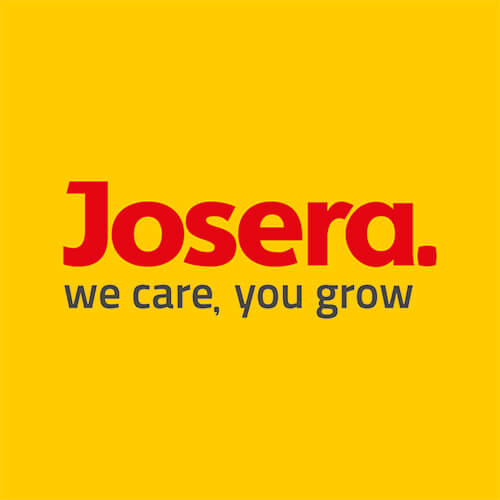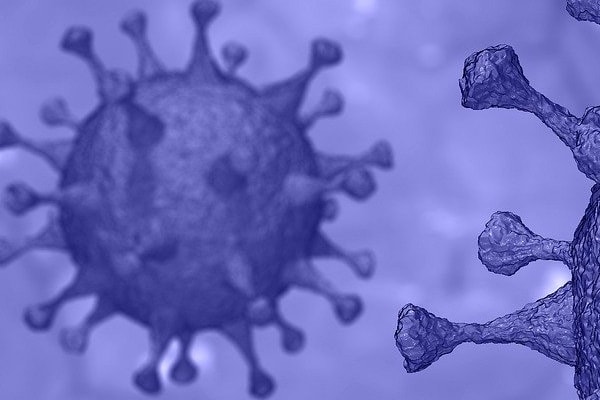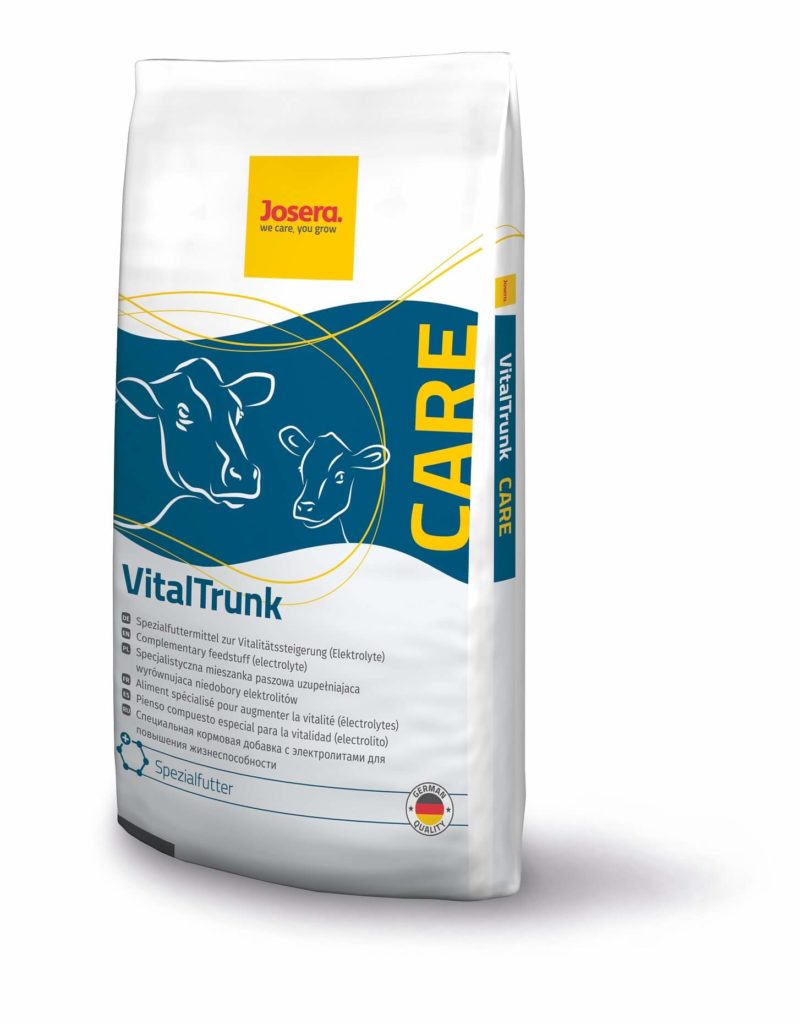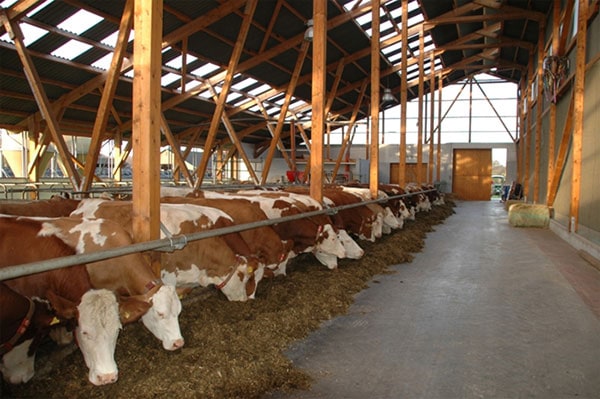Transmission of Covid-19-virus from and to animals
According to current knowledge, bats play a role in the transmission process. Molecular biological studies have shown that related viruses are found in these animal species. Just how susceptible our farm animals are to SARS-CoV2 and whether they can be infected has yet to be tested. So far, however, there is no evidence that farm animals can be affected by SARS-CoV2.
Are Covid-19-viruses also found in our farm animals?
Covid-19-viruses are found in both our pets and farm animals. An example of a Covid-19-virus-related infection in our pets is feline infectious peritonitis (FIP) that affects cats. In livestock, Covid-19-viruses are involved in various diseases, which lead to diarrhoea and respiratory diseases, among other things. However, it is essential to distinguish the pathogens from the current SARS-CoV2, which is dangerous for humans. They are not related to the virus responsible for respiratory diseases in humans.
What diseases do Covid-19-viruses cause in cattle?
The bovine Covid-19-virus is well adapted to cattle and therefore poses no danger to humans so far. Newborn calves in particular are at risk of becoming infected with Corona, as older cattle carry the pathogen as a reservoir. Covid-19-viruses are proven to be involved in up to one fifth of all diarrhoea in calves. An infection often manifests itself in the first week of life, leading to uncontrollable diarrhoea with a massive amount of fluid loss. Due to the massive electrolyte losses caused by the diarrhoea, the calves fall into metabolic acidosis. A vicious circle is created as the increasingly weakened calf is less and less able to reabsorb both the fluid and electrolytes that have been lost on its own. Promptly supplying JOSERA VitalTrunk when the diarrhoea starts helps to prevent slipping into this vicious circle.
?? Read more about the field of application of VitalTrunk here. Vitaltrunk is not only used as electrolyte solution and as hydration for calves but also as a whole milk supplement or calving drink.
However, severe fluid loss can only be compensated by the vet through intravenous administration. An effective prophylaxis against diarrhoea caused by Covid-19-virus can be achieved by a double maternity vaccination before calving. The vaccination produces an increase in colostral antibodies in the cow’s milk, which can effectively protect the calf’s intestine from infection. A prerequisite for the effectiveness of the vaccination is the sufficient drinking of the colostrum of a vaccinated mother. If the colostrum quality is insufficient and there is no suitable high-quality reserve colostrum available, additional immunoglobulins can be added, such as those in JOSERA Colostrin, to enhance the colostrum.
Covid-19-viruses can spread explosively amongst younger adult cattle in the herd. As the name “winter dysentery” suggests, the disease occurs during the winter months. The symptoms usually disappear just as quickly as they came. Individual animals may only be sick for less than one day. Nevertheless, an outbreak is clearly noticeable in the herd. In addition to reduced appetite and diarrhoea, affected cattle can show classic symptoms of respiratory diseases such as nasal discharge and coughing. Young cows after calving and high-performance animals are particularly susceptible to infection, which can lead to drastic milk loss. There are no effective prophylaxis or therapy measures. Only the support of fluid balance can provide relief for affected animals (JOSERA VitalTrunk).
As one of the causes of enzootic bronchopneumonia, Corona play an important role in beef cattle farming. Stress-triggering factors such as weaning from milk, regrouping in the barn or transport and housing lead to a reduction in the body’s own defences. This circumstance paves the way for the interaction of a multitude of different viruses and bacteria, which can only then develop their pathogenic effect. Disease-promoting environmental conditions such as poor climate in the barn or overcrowding contribute to the severity of the diseases. Depending on the immunity situation and combination of germs, the symptoms range from slight fever, cough and nasal discharge to high temperature and significant shortness of breath with corresponding lung changes. At this stage, a medical intervention by the vet can no longer be avoided. Assuring sufficient immunity is essential to keep the severity of the disease as low as possible. Appropriate vaccination measures must be taken and husbandry conditions optimised.
?In order to support the immune response, milk replacers, in which immunoglobulins that fight against certain pathogens are preserved, can be used to provide special support for the calves’ immunity, among other things. This is what our milk replacers JOSERA IgluVital, JOSERA Brillant and JOSERA GoldenSpezial are for.
Conclusion
Covid-19-viruses act in cattle as pathogens that lead to diarrhoea and respiratory tract infections. A sufficient immunity is the best prevention against an outbreak of disease. When diarrhoea occurs, balance of fluid and electrolytes is essential.
Bovine Covid-19-viruses have nothing to do with the new SARS-CoV2. The extent to which farm animals can carry the “new” virus, even if they do not show any symptoms of the disease, requires further research. The Friedrich-Löffler-Institute is currently testing pigs and chickens. However, results are not expected before the end of April.
You might be interested in the following contents:
Respiratory diseases in calves: Things to look out for!
Respiratory diseases, such as coughs and pneumonia, are becoming increasingly common. The consequences are slower weight gain, additional expenditure for treatments and a longer rearing period.
Stall hygiene for cattle – count on the right concept!
High germ content in the environment negatively affects the animal’s immune system. The organism is busy producing antibodies and eliminating germs instead of producing milk, growth or reproductive hormones.








 (No reviews available)
(No reviews available)
